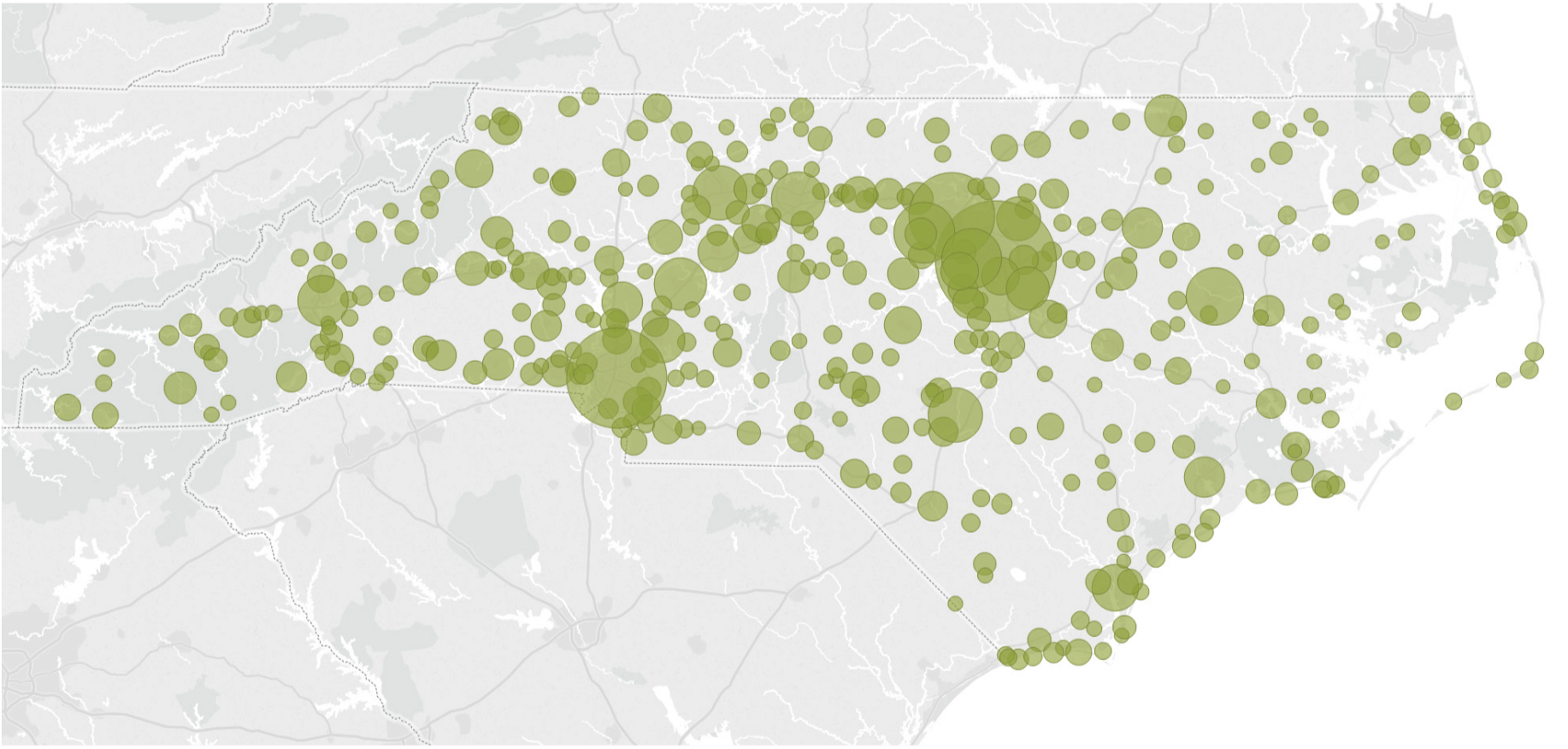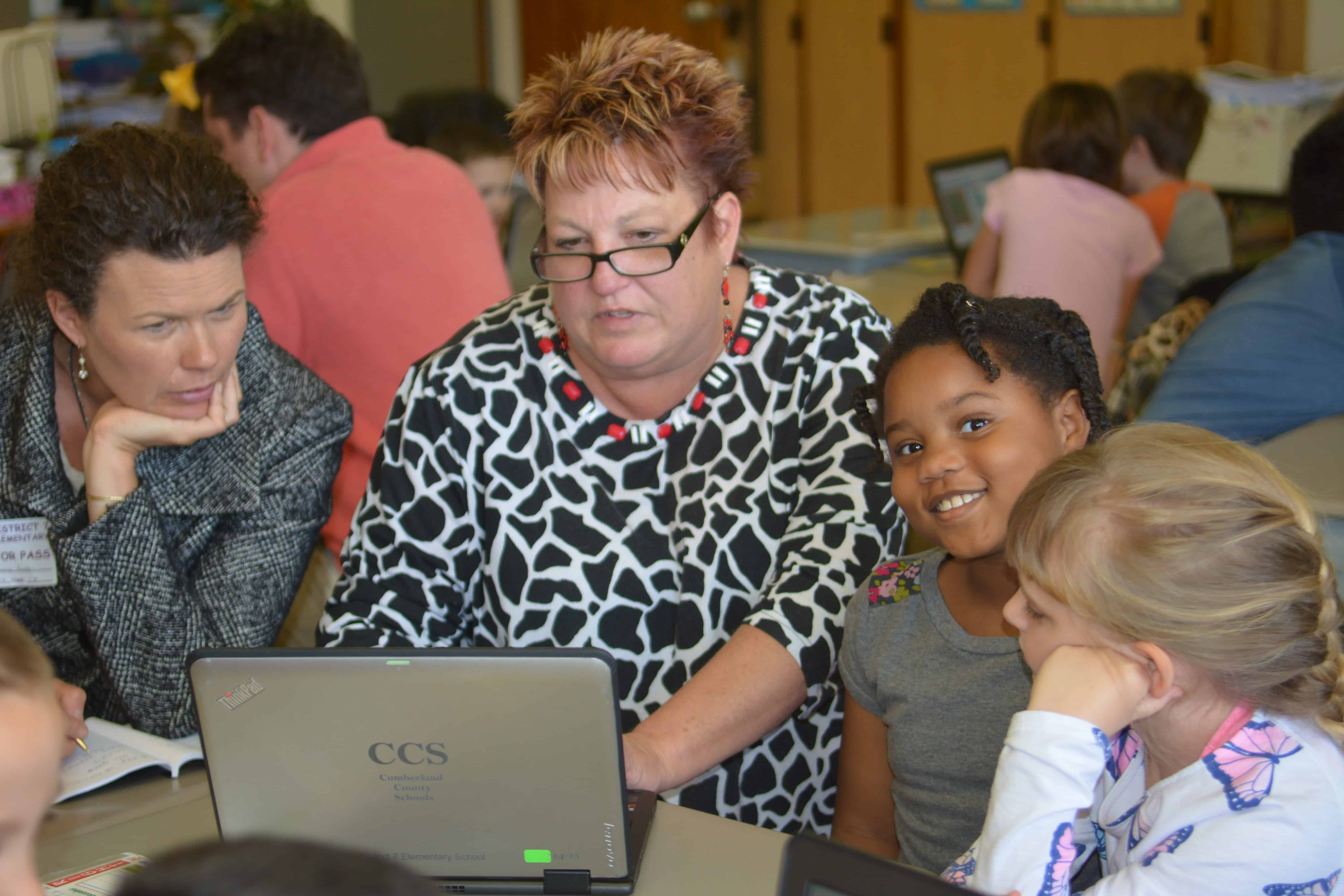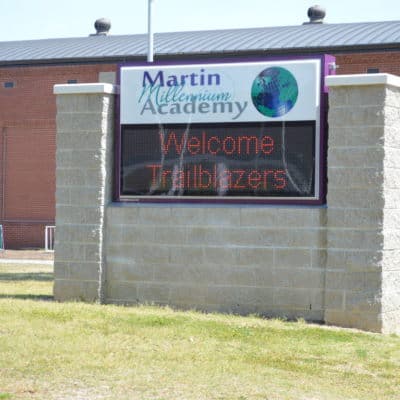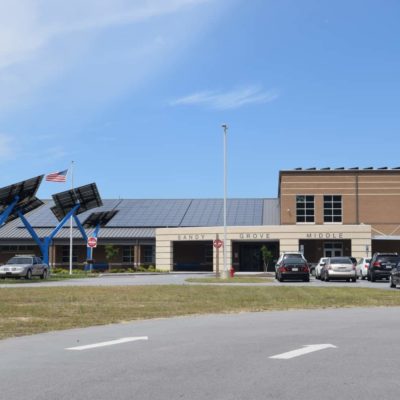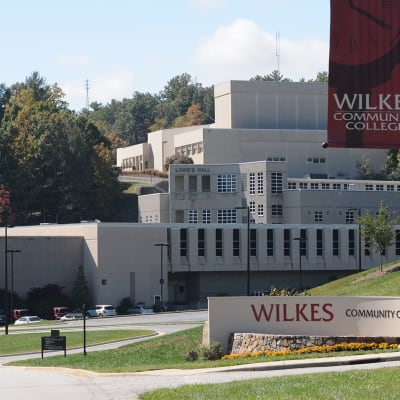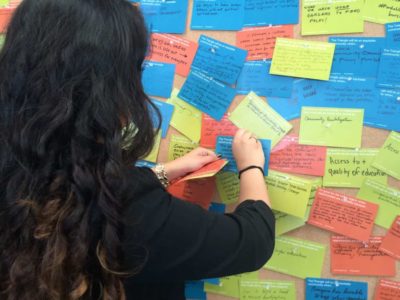The type of research
EdNC is proposing a project to build public will for education by identifying and highlighting the best practices of leaders, programs, and schools in rural areas of our state to increase college-going rates, with a focus on STEM, AP, and digital education. This project will showcase the work of rural school systems across the state. We will share the success stories of rural counties through high quality, multimedia research, providing lessons for us all.
Combining the best of a think tank with the most current communication strategies, EdNC uses reliable and objective survey, qualitative, and quantitative research methods to discern best practices and determine whether they can be replicated and scaled in other schools and communities.
In rural schools all across our state, great things are happening and our state needs to know it.

EdNC does not have fancy offices with researchers sitting behind desks writing policy reports. Our research happens in schools and school board meetings in communities across North Carolina.
Using a style that is all our own, EdNC marries data with research, analysis, and stories to determine what works and why and then think about whether and how to replicate in other communities or scale up statewide. Our digital multimedia content design is truly innovative; for example, this article on STEM-oriented problem solving at the Hub Farm in Durham:
Because we saw a need for a hub for education data, we conceived and built our education data dashboard in six weeks:
We will bring this exceptional level of expertise and innovation to this project.
EdNC has been surveying STEM programs across the state for the past year, and Mebane is traveling with 12 beginning teachers to Singapore this summer to study math and science education. The team is ready to conduct in-depth research on these issues in rural communities.
For each article in this project, we will use our market acquisition strategy to make sure that the content reaches users statewide.
Our platform is the backbone of our market acquisition strategy. Here is how it works. Daily content draws users who consume the research in bite-sized chunks, allowing them to comment on the research as it unfolds. The end result is the same body of knowledge as a policy report but delivered in a way that creates a feedback loop for researchers and creates momentum for change. We hired a nationally regarded web developer to be our chief technical officer and to both build the website and design each piece of content to maximize the user experience. The content for the website is also used on Facebook and Twitter so we can reach different audiences with different platforms as we work to meet our community where they are.
For statewide footprint, we leverage legacy media. EdNC does in-depth interviews on education once a month on Time Warner Cable, which gets us into every household with cable across the state. It is the best broadcast media exposure in terms of reach. EdNC is also regularly on Carolina Business Review, the most watched public policy television show in North and South Carolina. All of EdNC’s content is available free of charge to media outlets across the state as part of our mission to provide high-quality content and coverage of this issue. Newspapers statewide run articles provided by EdNC.
We also leverage existing distribution networks. Across the state, many people access our research because they receive it through another organization; for example the NC Farm Bureau, NC PTA, the Kenan Fellows, NAMINC, NC PAPA, and the Public School Forum.
Our research is sent out by email daily via a daily digest and weekly via a weekly wrap-up.
We utilize our market acquisition strategy which entails targeted advertising of about $40 a day on Facebook and Twitter. We use this strategy in counterintuitive ways to maximize impact. For instance, if we do a story in one county, but we want it replicated in another county, then we allow our organic reach to drive consumption in the home county but we boost the content in the county where we to inform stakeholders.
An important byproduct of the project is an archive of photos, videos, and maps related to communities in rural areas in North Carolina.
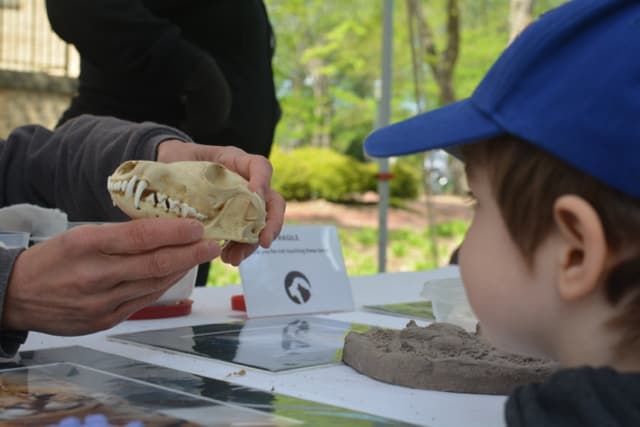
How many?
We anticipate a quarterly in-depth series (five articles over the course of one week) on STEM, AP, digital technology, and one other program that increases college-going rates in rural counties — for a minimum of 20 articles. These series will be tied together with at least one article each week on the ongoing project research to connect the dots for readers for a total of 68 articles over the course of one year. The articles will include maps and data.
Each article should be viewed as a fragment of the overall research. They thread together to provide a comprehensive view of what is happening with education in North Carolina.
Average time frame
The project will last one year, and at least one article will be produced each week during the project.
Who conducts the research?
EdNC staff will conduct the research. We will hire consultants, if needed, for particular aspects of the project.
Mebane Rash is the CEO and Editor-in-Chief. She has won national awards for most distinguished research, most effective education of the public, and outstanding policy achievement.
Alisa Herr is EdNC’s chief technical officer, web developer, and resident expert on STEM.
Todd Brantley is EdNC’s policy director and lead researcher.
Nation Hahn is EdNC’s chief growth officer and resident expert on communications.
EdNC contracts with Emily Antoszyk’s to create maps and other data visualization tools. Emily is a researcher at the Friday Institute for Educational Innovation.
Our model includes curating and elevating rural voices statewide. To date, we have published more than 275 voices — voices that would not otherwise have a platform. It is important to note that one byproduct of the project will be the elevation of rural voices across North Carolina in a way that builds leadership capacity in critical areas.
